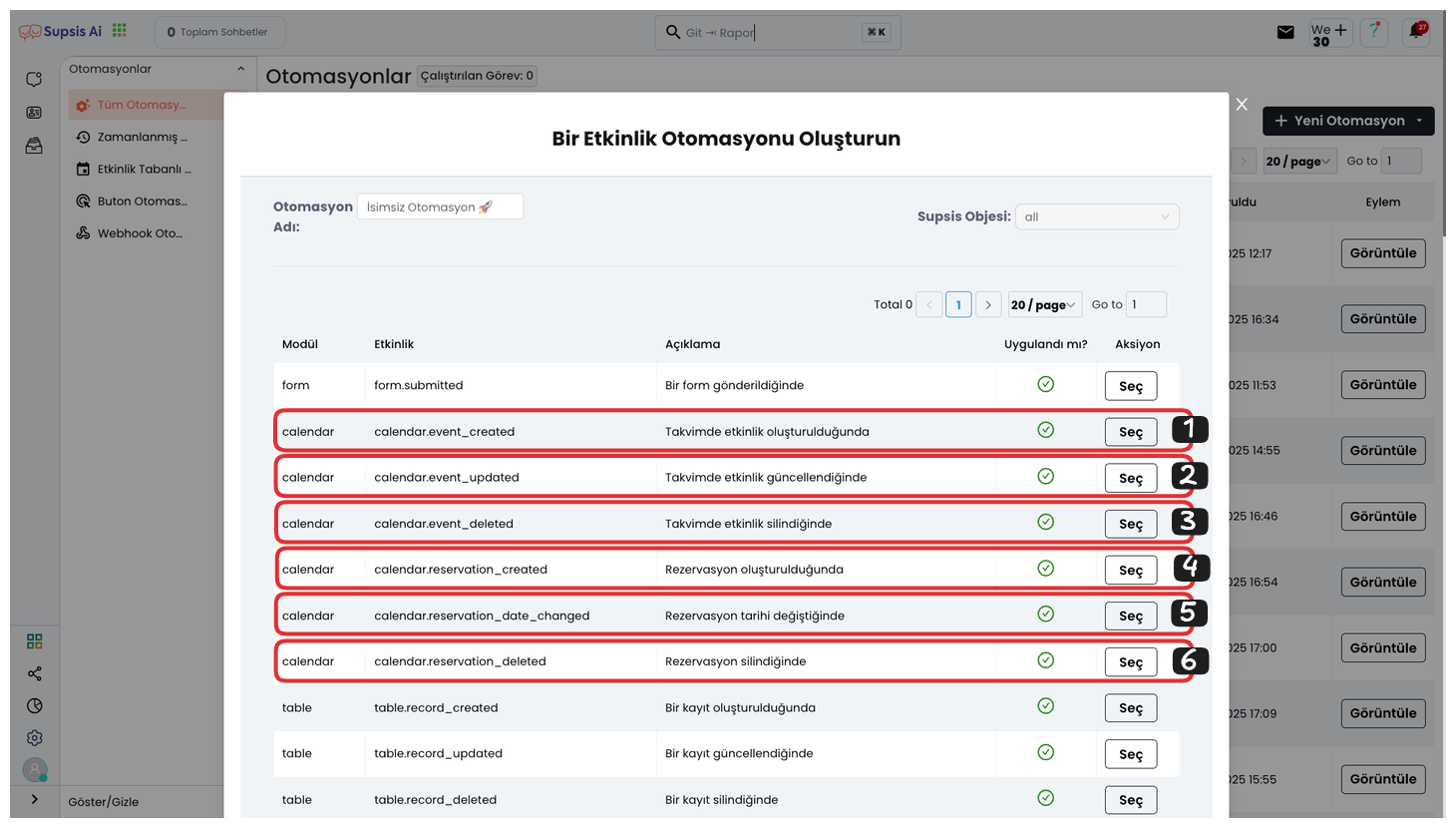Calendar Action Based Automations
Calendar Action Based Automations are automations that are triggered based on changes made in the calendar module. For example, when an event is created, when a reservation date is changed, or when another change is made in the calendar, these automations are activated. These types of automations automate and track calendar-related operations such as events, appointments, or reservations. Thanks to calendar automations, timely reminders, notifications, or other actions can be triggered without the need for manual intervention.

Calendar Action Based Automations:
- When a Calendar Event is Created
- When a Calendar Event is Updated
- When a Calendar Event is Deleted
- When a Reservation is Created
- When a Reservation Date is Changed
- When a Reservation is Deleted
1-) When a Calendar Event is Created
This Automation is triggered when a calendar event is created. That is, when a new event is added to the calendar, the operations you determine automatically begin. For example, when a new meeting, appointment, or event is created, the system takes this data and performs predefined actions. This automation makes calendar management more organized, can send reminders about events, or convey notifications to relevant people.
2-) When a Calendar Event is Updated
This Automation is triggered when a calendar event is updated. That is, when a change is made to an existing event (for example, when the date, time, or event information is updated), this automation is triggered. This way, necessary operations related to calendar updates are automatically performed. For example, you can send notifications to participants about the updated event, update related tasks, or make reminders to people monitoring changes in the calendar. This automation increases efficiency in event management and reduces manual intervention.
3-) When a Calendar Event is Deleted
This Automation is triggered when a calendar event is deleted. That is, when an existing event is removed from the calendar, this automation is triggered. You can automatically perform necessary operations related to deleted events. For example, when an event is deleted, you can inform participants, cancel tasks related to the event, or trigger other automations affected by the deletion operation in the calendar. This automation helps manage event deletions in a faster and more organized way.
4-) When a Reservation is Created
This Automation is triggered when a reservation is created. That is, when a user makes a new reservation, this automation automatically activates. With this automation, operations such as reservation confirmation, reminders, payment processes, or starting related tasks can be automated. This way, reservation operations are managed more efficiently and error-free.
5-) When a Reservation Date is Changed
This Automation is triggered when a reservation date is changed. That is, when a user changes the date of an existing reservation, this automation automatically activates. With this automation, you can send information emails after the date change, add a new reminder, or send a notification to the relevant person. This way, date changes in reservations can be managed quickly and accurately.
6-) When a Reservation is Deleted
This Automation is triggered when a reservation is deleted. That is, when a reservation is cancelled or deleted, this automation automatically works. Information can be provided about the deleted reservation, warnings can be sent to relevant people or departments. Also, related data in the system can be updated. This automation allows you to manage the reservation cancellation process more efficiently.